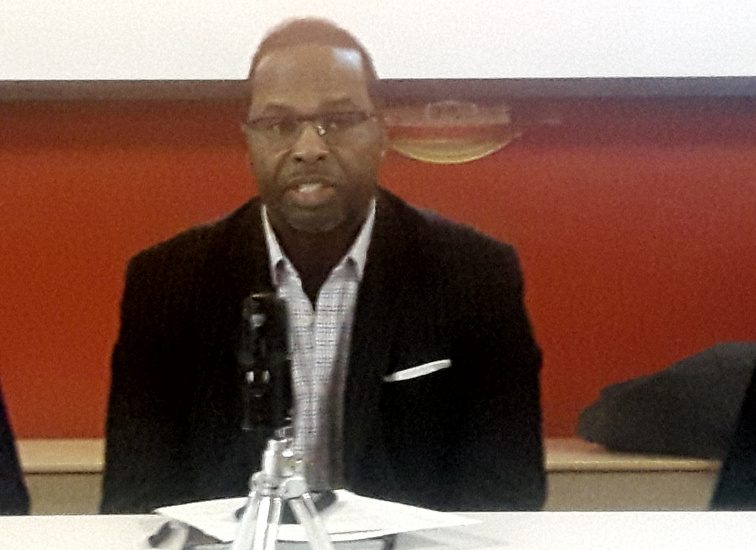KJIPUKTUK (Halifax): Last week a Nova Scotia Human Rights tribunal awarded $600,000, the largest award by far in its history, to an individual identified only as Y.Z.
See also: Racism allowed to fester at Halifax Transit for decades
The decision describes how Y.Z., a white mechanic at Halifax Transit, was haunted by managers and colleagues because his wife is African Nova Scotian and he had befriended and supported employees who were Black and Inuit and were subjected to racist slurs and threatening behaviour.
Unfortunately, this was not an isolated incident, not in terms of Halifax Transit, nor in terms of other city workplaces.
In 2016 the Nova Scotia Advocate reported on horrendous discrimination faced by African Nova Scotian, female, disabled and gay employees of the HRM Municipal Operations division.
And in late 2017 Halifax Fire apologized, sort of, to former firefighter Liane Tessier, who suffered years of abuse and misogyny at the hands of management, human resource workers and co-workers.
Given all this, Equity Watch Nova Scotia, an organization that wants to end bullying, harassment and discrimination in the workplace, renews its call for what it calls an an independent forensic human resources audit.
To learn more, we talk to Connor Smithers-Mapp, a lawyer and member of Equity Watch.

The Equity Watch press release mostly addresses HRM management. What is the role of Council in all this?
If anything, Council should ensure that Halifax’s workplaces are a shining example in terms of how a well-functioning, equitable workplace should operate, and I think they’ve been derelict in their duties.
Council should make sure that there is more accountability and more responsibility on City agencies. After all, they’re not private corporations. Councillors make these statements that are essentially just rhetoric, but there’s very little action that’s tangible. They’ll say look, isn’t racism terrible, we want to be a world class city and we want our workplaces to be fair for everyone, but they’re not really engaging in the kind of work that would ensure that anything gets accomplished.
These problems are there, but all we hear are these hollow, I’d almost call them non-apology apologies. They don’t really mean much, they’re not accompanied by the kind of work that we need them to do to ensure that this stuff doesn’t happen again.
When council thinks that some issue may make them more popular, then they’re there like a dirty shirt, but when it’s something that they don’t want to touch they’ll say, well this is a staff issue, this is the CAO’s issue.
Yes, there are there are certain things that the CAO has the authority to do, but there’s very little at the CAO does without council’s ability to at least comment on it, and influence it.
What should be the role of the union in these cases?
Things fall apart when the union abdicates its responsibilities to all of its members, which does happen, especially when it involves member on member complaints. Often unions don’t really want to touch this. But they do have this responsibility to all of their membership, especially when it comes to to issues around natural justice and fairness.
One factor is that not all but most trade unions are still dominated by caucasians who either don’t know much about these issues and feel ill prepared or they simply don’t care about these issues. I’ve had union officials basically say that they really didn’t believe in equity programs or privilege or racism, didn’t really see it as a problem.
So the unions have to be pulled along too, much like the City councilors. And if they don’t feel well versed in these issues, there’s lots of people who are expert in these issues in the community that can work with the unions. Many people have offered to do that.
What about the role of HRM lawyers in all of this?
What bothers me the most in all of this is that city lawyers advanced this argument that the racist slurs directed at Y.Z. were protected under free speech provisions. A first-year law student would know that hate speech is not protected under any free speech provision. The fact that the lawyer who advanced that argument thought they could get some traction that way is absolutely outrageous.
See also: HRM lawyer defended racist slurs as protected speech
The city, whether it was the CAO, city council, or the mayor really should have made a public statement distancing themselves from that. I think people would have been forgiving if the city has said, look, in no way do we think that hate speech, or abusive speech is free speech. But at no time did they disavow what the lawyer was advancing. For me that’s really bad.
Read the Equity Watch news release here.
With a special thanks to our generous donors who make publication of the Nova Scotia Advocate possible.
Subscribe to the Nova Scotia Advocate weekly digest and never miss an article again. It’s free!




With respect to: “What about the role of lawyers in all this? ”
Connor I am glad you pointed this out. I have never understood why lawyers advance arguments they know are false and misleading. Why? Does their unfair commentary not contribute to the normalization of hate speech and other indignities? Misleading but persuasive legal argument gets spread about and distorted. Some people actually believe this irresponsible communication (legal argument) is true. I thought legal argument was opinion, based on the intent of the law and the facts – not fantasy.
RE: “Any first year law student knows hate speech is not protected under any provision . . . .”. The first year law student would have learned that hate speech would not be protected under the Charter when he went to grade school. Educators in this province teach about the Charter and embed their values in their curriculum through many literacies and the social sciences – the Charter is an essential learning outcome for children from primary to grade 12. Not everyone gets it and not every teacher teaches it but the majority of the teachers are successful in conveying the message of what freedom of speech means and what it doesn’t mean. They know hate speech is not free to use.